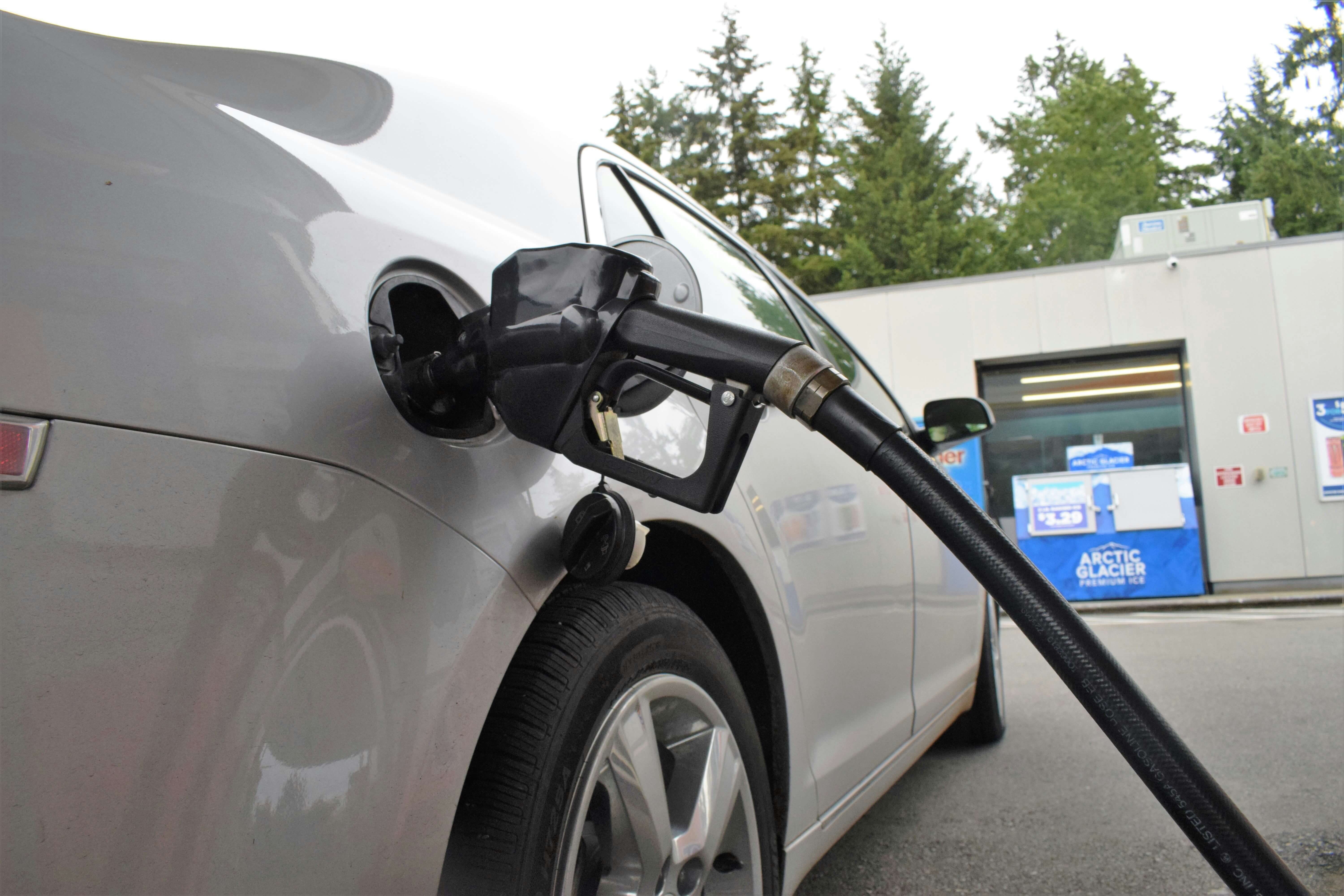The bioethanol car (E85): characteristics

Summary
- 1. What is E85 fuel?
- 2. What is a Flex-Fuel Vehicle (FFV)?
- 3. Performance and fuel economy
- 4. Environmental benefits: why E85 is a greener choice
- 5. Availability of E85 fuel and its infrastructure
- 6. Cost comparison: E85 fuel vs standard oil
- 7. E85 fuel conversion kits and tuning
- 8. Maintenance considerations
- 9. Driving experience with a E85 car
- 10. The future of E85 and bioethanol
- 11. Bioethanol as a stepping stone to electric
- 12. Travel smart with Europcar
- 13. What to keep in mind
The world now focuses on sustainable alternative fuels, and bioethanol serves as an environmental solution that transforms driving practices. The ethanol-gasoline mixture E85 has captured attention due to its performance-equivalent quality while delivering environmental benefits through an 85-15 ethanol-gasoline blend. The basic features of E85 cars and their distinct characteristics require clarification.
What is E85 fuel?
E85, also known as flex fuel, is a flexible high-ethanol blend fuel primarily used in conjunction with flex-fuel vehicles (FFVs). While commonly referred to as an 85 percent ethanol product, the actual content ranges from 51% – 83% ethanol, depending on the area that it’s being sold and the climate’s impact on its infrastructure. Ethanol is an alcohol-based fuel made from renewable sources like corn, sugarcane, and other biomass. Through fermentation, ethanol is produced and is subsequently mixed with gasoline to yield E85.
Unlike traditional fossil fuels, this type of fuel aims to provide a cleaner means of powering vehicles. It promotes environmental preservation while retaining internal combustion engines.
What is a Flex-Fuel Vehicle (FFV)?
A Flex-Fuel Vehicle (FFV) is specially designed to utilize gasoline, E85, or any combination of the two. Automobiles qualified as FFVs have internal combustion engines fitted with specialized fuel systems that detect ethanol levels and modify the fuel injection accordingly.
Many automobile manufacturers offer FFVs in a wide range of models. Identification features often include E85 or FlexFuel emblems, but more commonly, a yellow fuel cap indicates the vehicle’s compatibility with bioethanol fuel.
Performance and fuel economy
E85’s main feature is its higher octane. It promotes more effective combustion, resulting in improved performance when used in appropriate engines designed to be tuned for this fuel. E85 has slightly reduced fuel economy from gasoline because it contains less energy per gallon of fuel. E85 must be refueled more frequently, although its pump price typically costs less than conventional gasoline.
Although E85 vehicles consume more fuel per mile, the combustion properties of ethanol provide more acceleration power and higher engine horsepower.

Environmental benefits: why E85 is a greener choice
The combination of performance and sustainability makes E85 an excellent fuel choice since it has significant environmental advantages. E85 contains ethanol as its primary constituent, which constitutes the bulk of its composition. It is a renewable plant-based material that enables twofold advantages of reducing emissions and environmental sustainability. This article addresses the environmental advantages of E85 fuel and how such a fuel choice creates considerable ecological impacts.
Reduced greenhouse gas emissions
Ethanol can be derived from corn, sugarcane, and even agricultural waste. These crops, as they are cultivated, absorb CO2. The combustion of E85 does release carbon dioxide, but its total CO2 effect is far better than fuels made from petroleum.
- Lower lifecycle emissions: ethanol’s entire lifecycle is associated with reduced emissions relative to gasoline’s. Ethanol ethanol’s carbon impact is less than that of gasoline.
- Biogenic carbon: since ethanol is derived from plants, most of the CO2 emissions are part of the carbon cycle rather than an addition to it.
- E85 has been found to decrease fossil fuel consumption: increased consumption of E85 fuels decreases fossil fuel consumption owing to crude oil extraction and refining, which are heavy on energy uses and pollute the industry. Thus, the dependence on fossil fuels is diminished.
Improved urban air quality
The use of E85 fuels allows vehicles to emit less carbon monoxide, nitrogen oxides (NOx), and particulate matter when they are used in urban environments.
- Reduced carbon monoxide (CO) emissions safeguard human respiratory health and reduce the formation of ground-level ozone (smog).
- The use of E85 leads to decreased hydrocarbon emissions, which minimizes photochemical smog formation and reduces respiratory symptoms.
- The sulfur content in ethanol is practically nonexistent, as it lacks sulfur compounds compared to diesel and conventional gasoline.
Renewable and sustainable sourcing
Ethanol production from corn, sugarcane, and biomass crops enables sustainable fuel mix components because these crops can regenerate for future use. The use of second-generation bioethanol made from agricultural waste reduces environmental pressure through its non-food biomass production methods. Consequently, optimized production systems linked with sustainable farming practices lead to reduced water and land utilization.
Good to know
Bioethanol helps in preventing oil spills. One of the less prominent benefits of using ethanol-based fuels like E85 is reduced risk of contamination to the environment. Ethanol, in case of spills, is biodegradable and breaks down faster than gasoline or diesel. It is thus less hazardous to soils and waterways in the case of accidents during transportation or refueling.
Availability of E85 fuel and its infrastructure
The majority of fueling stations throughout the US Midwest offer E85 because ethanol production reaches high levels in this area. However, the availability of E85 fueling facilities remains restricted in various global areas. Flexible fuel vehicle ownership depends heavily on the availability of E85 or alternative fuel options in the user’s area.
Before purchasing an E85 vehicle, you should inspect nearby E85 station availability and confirm their ability to easily access the fuel while driving their regular routes.
Cost comparison: E85 fuel vs standard oil
There exist price benefits for E85 fuel when compared to standard gasoline prices. Your fuel efficiency reduction will affect cost savings because they depend on the fuel price difference and your driving patterns.
The economic benefits of E85 usage become more attractive for drivers who accumulate many miles on the road because government rebates and low-emission vehicle incentives further improve their savings.
Operations managers who manage fleets and travelers who need to cover long distances choose E85 vehicles because they help them satisfy budget requirements and reach environmental targets.
Good to know
Not all cars are E85 compatible. If it’s used in a non-flex-fuel engine, the engine and fuel system can be compromised. Consult your vehicle manual and fuel door tag, or ask your dealer to make certain your engine will work with ethanol.
E85 fuel conversion kits and tuning
The market provides conversion kits that enable motorists who want E85 compatibility to avoid buying a new FFV. The kits contain both software and hardware components that allow the engine to process high-ethanol blends properly.
The process of turning a gasoline-only vehicle into an E85-capable one entails some potential issues. The corrosive properties of ethanol damage components that were not created for its use, while improper installation methods create performance issues.
Before installing conversion systems, consult a qualified professional since the process might be prohibited in some territories and may also affect your vehicle warranty.
Maintenance considerations
While ethanol helps clean the fuel system and engine, it loosens garbage as well, requiring occasional fuel filter replacement. The higher water-holding ability of E85 can lead to condensation within the fuel tank in the event that the car is left unattended for a long time.
Because ethanol burns cooler and cleaner, engine oil will keep longer. Routine maintenance checkups are still recommended; however, they are used to monitor for any change in engine performance or efficiency.
Driving experience with a E85 car
E85-powered vehicles will offer a responsive and smooth ride. Because of the high octane, acceleration is more immediate, so highway merging and passing is simpler. Flex-fuel vehicles automatically adjust performance depending on the fuel blend.
Good to know
During the winter, E85 blends contain more gasoline for cold-start assist. So, performance and fuel efficiency will vary slightly by season. While drivers will not need to do anything different themselves, familiarity with this difference may be helpful in managing expectations, especially in cold weather.
The future of E85 and bioethanol
Bioethanol is vital for establishing cleaner energy systems. It functions as an essential linkage between traditional combustion engines and the introduction of complete electric vehicle adoption. E85 is expected to receive wider public acceptance during emission reduction efforts because it serves regions that lack electric infrastructure transformation. The production of ethanol from agricultural waste through innovative processes will make E85 even more environmentally friendly, thus creating a sustainable fuel option.
Bioethanol as a stepping stone to electric
While EVs have a long-term mobility vision, E85 presents a practical alternative for those drivers not quite ready or willing to make the transition to electricity yet. It is beneficial for rural driving or for heavy-duty trucks where there is unlikely to be sufficient charging infrastructure available. Flex-fuel vehicles provide a more environmentally friendly option to still be able to use existing infrastructure but lower your footprint.
Travel smart with Europcar
As a leading vehicle rental service, Europcar enables you to select from various sustainable travel-compatible automobile options for your weekend outings; business travels, or countryside vacations. Through its network of stations, you can select the perfect model from flexible car rental services that span Europe and additional regions while choosing between low-emission city cars, hybrids, and E85-compatible vehicles.
The search for specific vehicle models within a particular city exists at this time. The platform provides both Paris car rental services and Italian car rental options for customers looking for sustainable vehicle choices in their area.
What to keep in mind
E85 cars provide an attractive combination of driving performance, environmental benefits, and adaptable fuel options. The vehicle selection enables drivers to cut their greenhouse gas emissions while maintaining their driving comfort. The vehicles serve as vital elements in global efforts to transition toward sustainable renewable fuel technologies despite their possible limitations for individual use cases. Through its vast automobile fleet, Europcar provides an accessible way for customers to adopt environmentally friendly driving habits.


